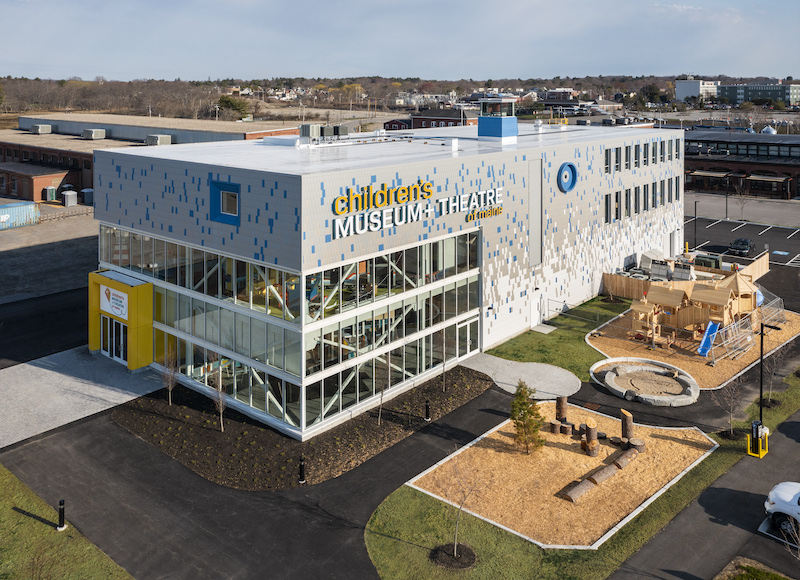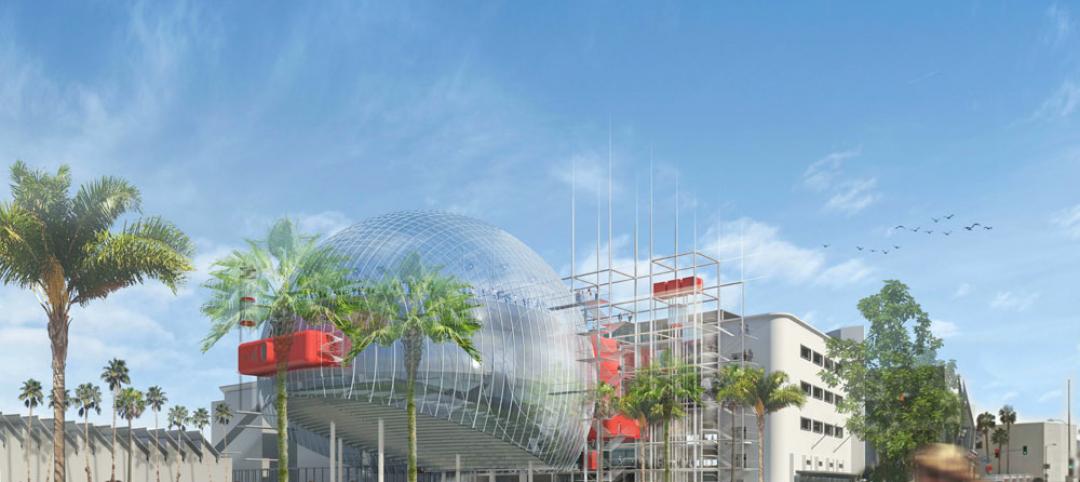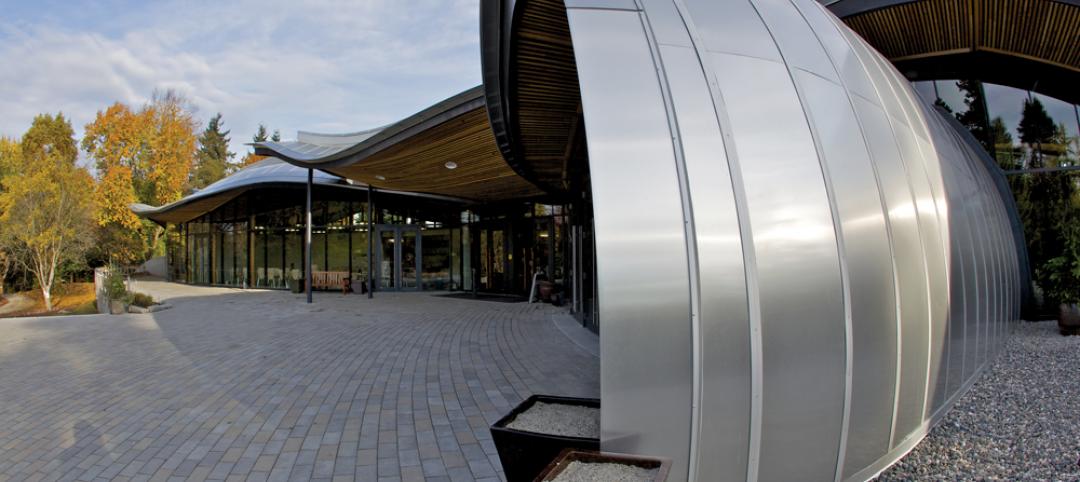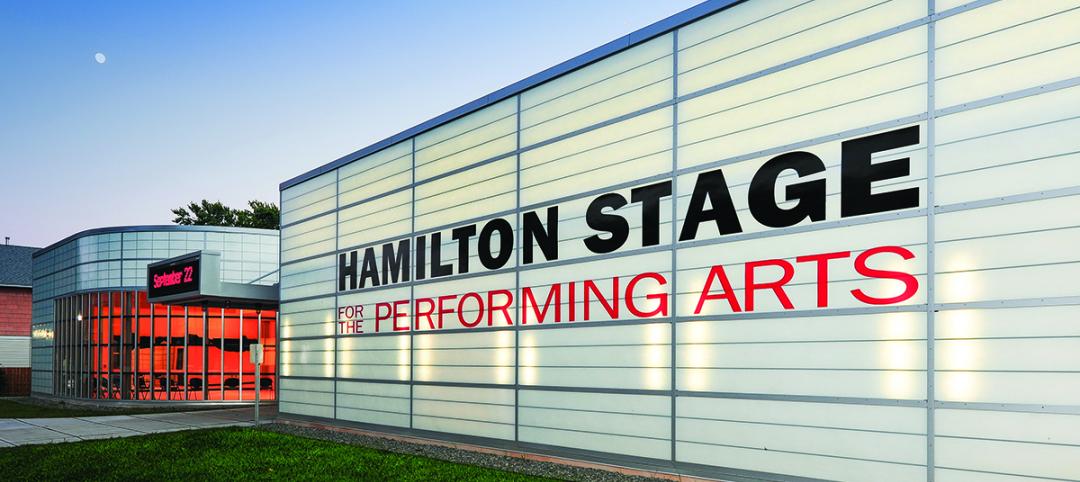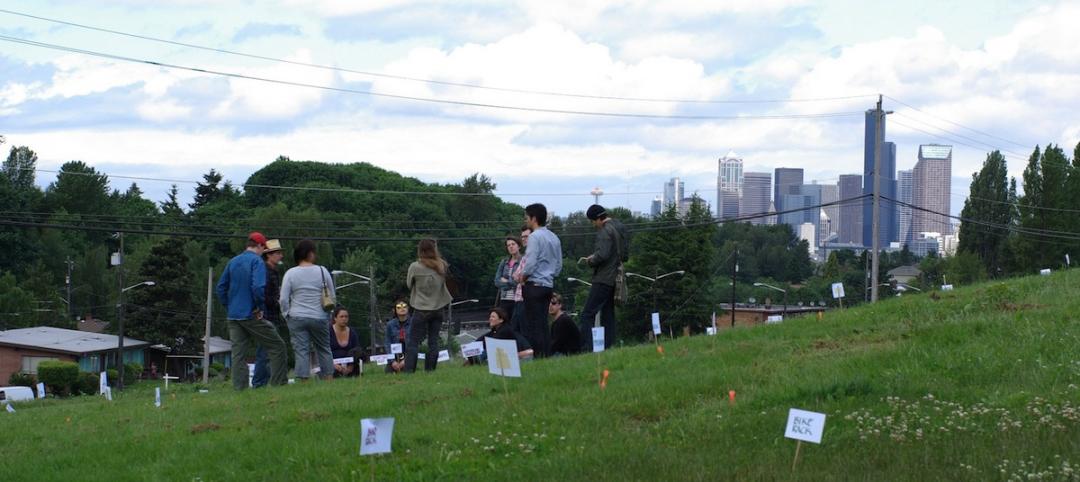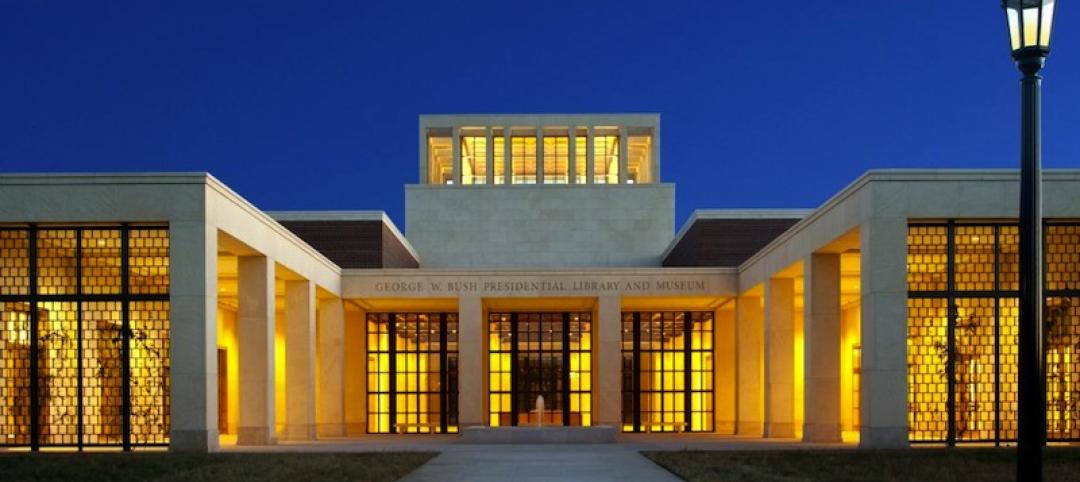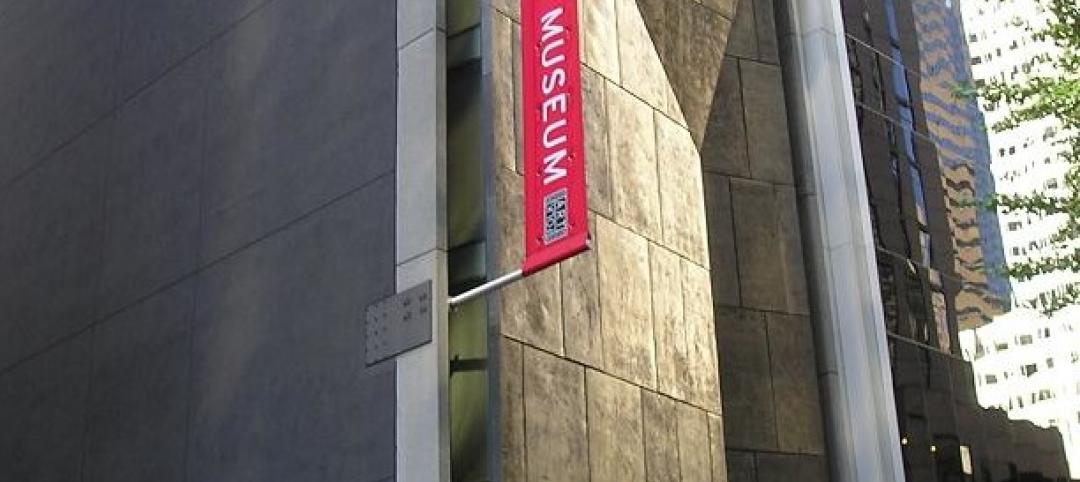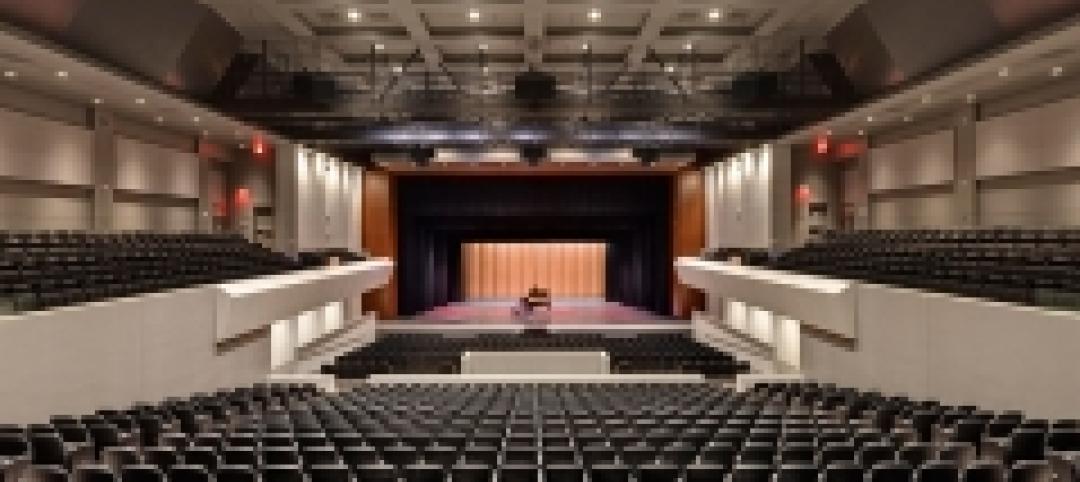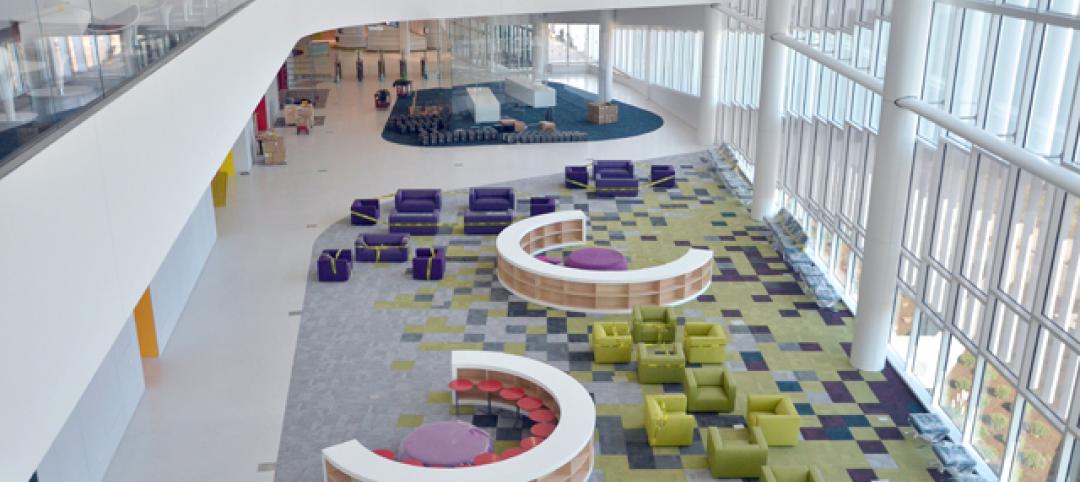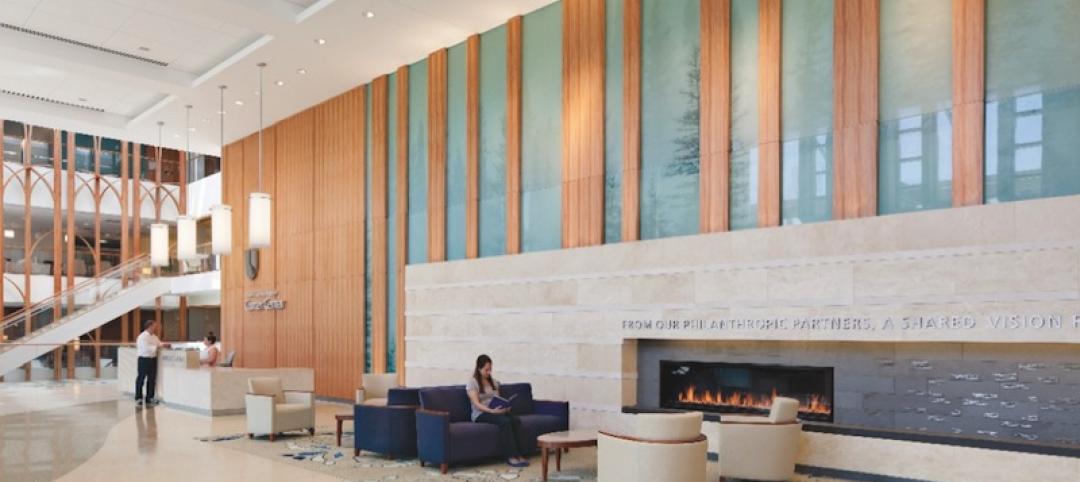The Children’s Museum & Theatre of Maine (CMTM) officially opened last Thursday, June 24, in its new 30,000-sf location at Thompson’s Point along the Fore River in Portland.
This location allows the facility to expand it programming and services in ways that its former 15,000-sf location, in Portland’s Arts District, restricted. The new building—offering the state-of-the-art Maddy’s Theatre with 100 seats, a STEM science center, a floor devoted to arts, culture, and community, and offices and meeting rooms—opens with limited capacity and other protocols in place to protect visitors and staff during the pandemic. Once it opens fully, the Museum and Theatre to reach over 200,000 visitors per year.
Bruner/Cott Architects led this project, which connects the CMTM to the site’s industrial shipping and railroad heritage. “We began this project nearly six years ago, building on our firm’s long history of museum and gallery design,” recalls firm Principal Jason Forney. “A true collaboration between our firm and our client has produced a building that embodies the Children’s Museum & Theatre of Maine’s mission and goals for its new venue, certain to attract visitors from near and far.”
The three-floor building’s proportions and window patterns are inspired by Thompson Point’s historic brick structures and steel cross-bracing. The exterior cladding of colorful metal shingles is arranged in a dynamic pattern. An outdoor play area is adjacent to the waterfront landscape.
Floor-to-ceiling glass surrounds the building’s 20-ft-high entry lobby, which connects the inside and outside and brings in natural light. The building's exhibit spaces incorporate visuals and programming that connect to Maine’s culture.
COST-SAVING SUSTAINABILITY
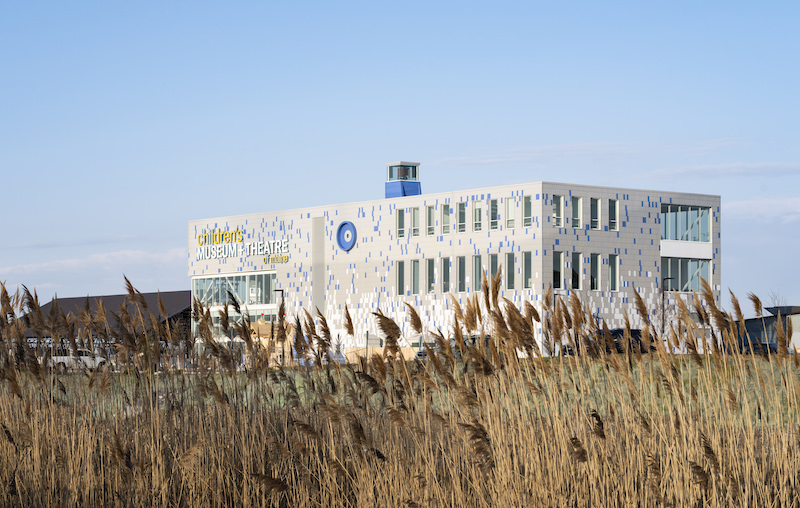
CMTM's new location, once the site of a railcar repair yard, was designed to blend in with its natural surroundings.
The project’s building team, which included construction manager Zachau Construction, employed sustainable strategies that addressed the challenges of a brownfield site that was once a railway repair yard. The project pre-loaded the building area to compact the soil and minimize off-site removal. Low wattage LED lighting was used throughout the building, and a VRF (variable refrigeration flow) system was installed for heating and cooling. The Museum site is also close to local, regional, and international public transportation.
To help pay for this project, the estimated construction cost of which was $7 million, the Children’s Museum & Theatre surpassed its $14 million fundraising goal, having raised over $15 million from more than 500 donors and the proceeds of the sale of its former building at 142 Free Street. CMTM worked with Nextstage Design to conceptualize and align its programming with its fundraising capabilities.
“As we move past the pandemic, we are enthusiastic about all the experiences our new building and its innovative, interactive exhibits and state-of-the-art theatre will bring to fans of our previous facility, as well as new visitors to Maine from across the nation and the world,” says CMTM Executive Director Julie Butcher.
Related Stories
| Apr 17, 2013
First look: Renzo Piano's glass-domed motion pictures museum
The Academy of Motion Picture Arts and Sciences last week released preliminary plans for its $300 million Academy of Motion Picture Arts and Sciences museum in Los Angeles, designed by Renzo Piano and local architect Zoltan Pali.
| Apr 16, 2013
5 projects that profited from insulated metal panels
From an orchid-shaped visitor center to California’s largest public works project, each of these projects benefited from IMP technology.
| Apr 12, 2013
Nation's first 'food forest' planned in Seattle
Seattle's Beacon Food Forest project is transforming a seven-acre lot in the city’s Beacon Hill neighborhood into a self-sustaining, edible public park.
| Apr 12, 2013
Chicago rail conversion puts local twist on High Line strategy
Plans are moving forward to convert an unused, century-old Chicago rail artery to a 2.7 mile, 13 acre recreational facility and transit corridor.
| Apr 11, 2013
George W. Bush Presidential Center achieves LEED Platinum certification
The George W. Bush Presidential Center announced today it has earned Platinum certification by the U.S. Green Building Council’s Leadership in Energy and Environmental Design program. The Bush Center is the first presidential library to achieve LEED Platinum certification under New Construction.
| Apr 11, 2013
American Folk Art Museum, opened in 2001, to be demolished
Just 12 years old, the museum designed by Tod Williams and Billie Tsien will be taken down to make way for MoMA expansion.
| Apr 5, 2013
Snøhetta design creates groundbreaking high-tech library for NCSU
The new Hunt Library at North Carolina State University, Raleigh, incorporates advanced building features, including a five-story robotic bookBot automatic retrieval system that holds 2 million volumes in reduced space.
| Apr 2, 2013
6 lobby design tips
If you do hotels, schools, student unions, office buildings, performing arts centers, transportation facilities, or any structure with a lobby, here are six principles from healthcare lobby design that make for happier users—and more satisfied owners.


